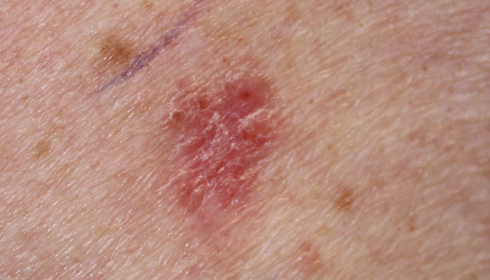
Histone protein enzymes and PKCα can resist skin cancer treatment: Study
In a new study, researchers from the Cancer Science Institute of Singapore at the National University of Singapore said that a histone protein-modifying enzyme, histone methyltransferase NSD2, and its pharmacokinetic target (breakdown component), PKCα can contribute to aggressiveness and resistance to the treatment of skin cancer patients.
Prof. Wee Joo Chng, a senior investigator at CSI Singapore, and Dr. Phyllis Chong Shu Yun, a senior researcher at CSI Singapore, conducted this study, which was recently published in the Journal of the American Association for Cancer Research.
This study demonstrated that histone methyltransferase NSD2 increases glycolysis by activating PKCα, resulting in excess lactate production, which promotes malignancy and suppresses the immunomodulatory drug response. These findings provide details about the potential target for improvement in myeloma treatment.
Cancer of plasma cells, or myeloma, is the second most common type of blood cancer, accounting for 15-20% of all myeloma cases. Patients with t(4;14) myeloma have a shorter overall survival rate. However, the key gene for myeloma is not targeted by drugs.
In their research, scientists from Singapore University mentioned the correlation between NSD2 and cellular metabolism through histone methylation. This could pave the way for the evolution of new treatment strategies for high-risk myeloma subtypes. This could have a positive impact on the development of new medications and non-invasive diagnostic tests.
Researchers state that targeted metabolic intervention may provide new therapeutic alternatives for t(4;14) myeloma patients. The determination of lactate levels as predictive biomarkers for drug response underlines the impact of metabolite signatures in medication strategies with the aim of providing personalised care.
Prof. Chng and his team members plan to study these findings to create a treatment plan for myeloma patients. They also want to develop the metabolomic structure to outline other genetically high-risk subtypes of myeloma and develop an effective therapeutic intervention.
The lead author of the study, Prof. Wee Joo Chng, said, "Our study aims to overcome the limitations of targeting the key deregulated gene in t(4;14) myeloma. It sheds light on the metabolic reprogramming of MM in response to the oxygen- and nutrient-deprived bone marrow microenvironment. By exploring the epigenome and metabolome of NSD2, we sought alternative vulnerabilities that could revolutionise treatment strategies."
A Lancet report revealed that, in 2020, multiple myeloma was responsible for 1,17,077 deaths in the world.